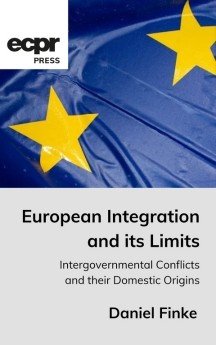European Integration and its Limits: Intergovernmental Conflicts and their Domestic Origins
About this ebook
This book explains how European governments handled these challenges and, step-by-step, agreed on significant reforms which led to the signing of the Lisbon Treaty in December 2007.
Drawing on unique survey data, European Integration and Its Limits provides a solid empirical analysis of the three most important intergovernmental conferences. It shows how far voters and political parties have been able to influence European treaty reforms, and it scrutinises the mechanisms underlying intergovernmental treaty negotiations in an ever-growing Union. The book discusses the domestic position formation process as well as the dynamics of intergovernmental bargaining. Ultimately, it explains European integration from Maastricht to Lisbon.
About the author
Daniel Finke is a junior Professor for Political Science at the University of Heidelberg. He received his doctorate at the University of Mannheim and his dissertation is a politico-economic analysis of Constitutional Politics in the European Union. His research on constitutional and comparative politics has been published in European Union Politics, the Journal of Common Market Studies, the Journal of European Public Policy, Political Studies, the Review of International Organizations and the Journal of Theoretical Politics. Currently, he is conducting a research project on 'European Legislative Responses to International Terrorism' as well as a project on legislative behaviour inside the European Parliament.




